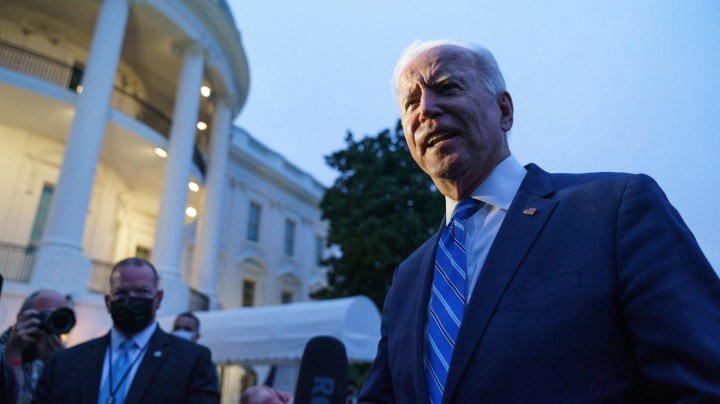
Biden administration squeaks open door to tariff exemptions
Biden administration squeaks open door to tariff exemptions

Last week, the Office of the U.S. Trade Representative said it would reopen the application process for U.S. companies to get out of paying tariffs on certain goods imported from China. On Tuesday, the USTR will start taking comments on this plan.
There are some goods that, for now, U.S. businesses just can’t get anywhere besides China.
“Sometimes those products are proprietary, they are unique, they are patent protected,” said Nicole Bivens Collinson, a trade expert with law firm Sandler, Travis & Rosenberg. “You can’t just take that design that you’ve been making and licensing with a company in China and say, ‘Oh, I’m going to pick it up and move it over here to Indonesia and start making it.'”
Moving supply chains, she said, can take four to five years for complex components — and that’s without a pandemic.
Harlan Stone runs HMTX Industries, a luxury vinyl-flooring manufacturer. The firm still has most of its factories in China. “We do use other countries, but the capacity that’s able to come on board, particularly during the pandemic, is a very limited percentage,” he said.
Businesses in these situations were able to get out of paying the tariffs under the previous administration, but those exemptions expired. The Joe Biden administration is saying those companies — and only those companies — can apply again to get out of the tariffs.
“The administration is finally getting around to recognizing that importers and small businesses have been hurt,” said Myron Brilliant of the U.S. Chamber of Commerce.
This comes at a time when many businesses are already struggling with supply chain problems.
“They are concerned about inflationary pressures. And this is a way where goods can be supplied in an efficient way when they aren’t available from other sources,” said Richard Weiner, a partner at law firm Sidley Austin.
Many businesses are hoping this represents a first step in loosening tariffs on Chinese imports.
“The reality is it’s a small step — 500 products or so is a drop in the bucket,” said Jake Colvin, president of the National Foreign Trade Council.
More than 50,000 companies applied for relief from the tariffs during the last administration.
Correction (Oct. 13, 2021): An earlier version of this article misidentified Nicole Bivens Collinson’s title. The text has been updated.
There’s a lot happening in the world. Through it all, Marketplace is here for you.
You rely on Marketplace to break down the world’s events and tell you how it affects you in a fact-based, approachable way. We rely on your financial support to keep making that possible.
Your donation today powers the independent journalism that you rely on. For just $5/month, you can help sustain Marketplace so we can keep reporting on the things that matter to you.

















